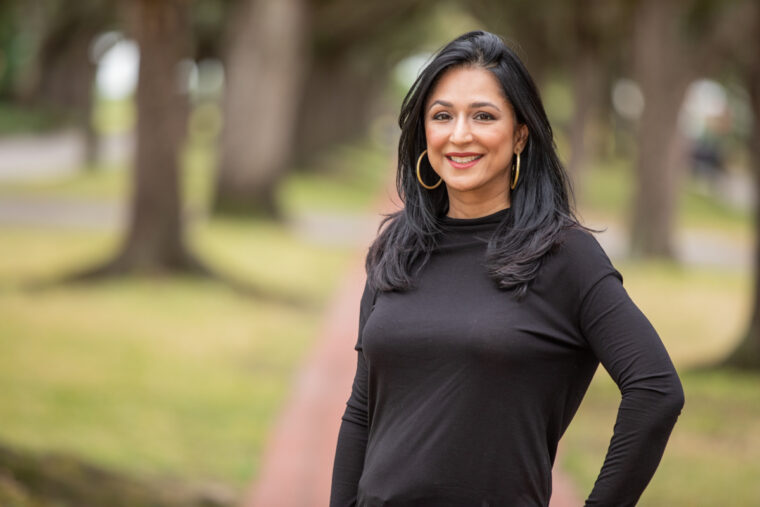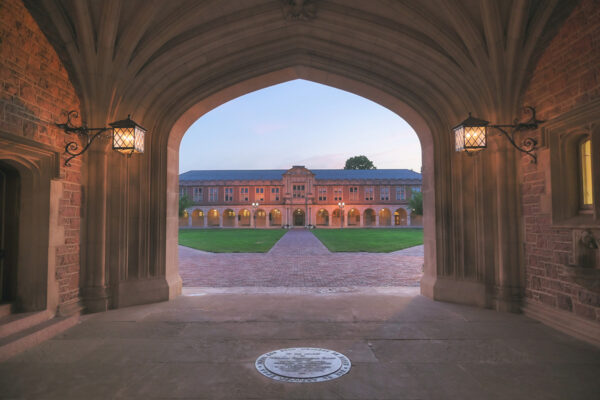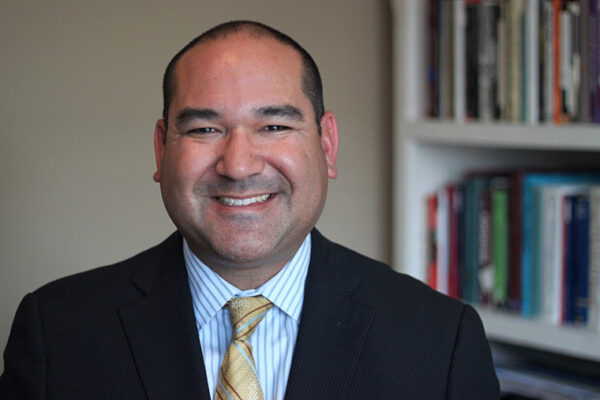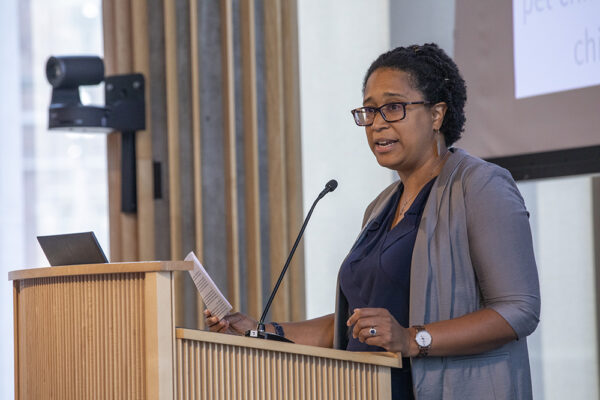Actively listening, pushing back on our own misconceptions, and making space for everyone requires self-reflection, empathy, curiosity and courage. The process of truly embracing and connecting with others — no matter their differences — can be challenging, even difficult at times.
That process is something that Aisha Sultan has incorporated into her life’s work.
The nationally syndicated, award-winning columnist, filmmaker and podcaster tells stories about families, race relations and being a Muslim mom in the heart of the Midwest. She is the keynote speaker for Washington University in St. Louis’ 6th annual Day of Dialogue & Action, coming up Feb. 18 and 19. Online registration for the event opens soon.
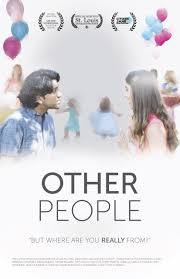 Sultan’s talk begins at 6 p.m. Feb. 18 at the Eric P. Newman Education Center on the Medical Campus, followed by a screening of her short film, “Other People.” A panel discussion and question-and-answer session will conclude the first night’s event. Sultan also will participate in a workshop the following day, Feb. 19, on the Danforth Campus that will require registration. A full schedule is forthcoming.
Sultan’s talk begins at 6 p.m. Feb. 18 at the Eric P. Newman Education Center on the Medical Campus, followed by a screening of her short film, “Other People.” A panel discussion and question-and-answer session will conclude the first night’s event. Sultan also will participate in a workshop the following day, Feb. 19, on the Danforth Campus that will require registration. A full schedule is forthcoming.
Sultan recently explained some of the main themes of her film and how she’ll address them during her participation in Day of Dialogue & Action.
At a time when our society and worldviews are incredibly divided, you’ve written, discussed and now made a film about challenging assumptions about others. Explain more about that.
It’s precisely when we feel estranged and isolated from others that we need to have these difficult conversations. This political and cultural moment has taken a toll on our relationships, our civil discourse and interactions with one another. But the root causes of societal divisions lie deeper and go back much further. My film aims to take viewers on a short journey with me to familiar places from an unfamiliar perspective.
It can be a tough process to step back, reflect and figure out where implicit biases might bubble up. In your mind, what’s the best way to start, and then sustain, the work?
It begins with a brutally honest and uncomfortable look inward — examining how our own biases play out in our lives, and how we begin to challenge both what we hear around us and within ourselves. The hardest thing to do is to listen — without defending, dismissing or minimizing. Then, we have to allow ourselves to feel a range of emotions around these issues. Once we are open to understanding what the world looks and feels like from a perspective different than our own, then we can try to make it a more welcoming place for everyone.
In your film, we watch as characters act out or speak about their misconceptions and deal with the results. What do you think needs to be involved in the journey from “otherness” to “inclusion”? And what does that look like?
It can be difficult to initiate these kinds of conversations or to know how to handle missteps. Sometimes, we’re not sure how to respond in awkward moments. And that’s OK. The possibility for growth exists in those moments of vulnerability and discomfort. We can create more inclusive spaces if we have greater empathy and understanding of the experiences people bring to those spaces.
How do you see the role of a university community as it pertains to addressing the notion of “others”?
Universities play a critical role in challenging our assumptions of the world, teaching critical-thinking skills and providing opportunities for discussions and relationships that may not happen elsewhere. At a university, many people have the chance to develop relationships outside of the boundaries they’ve largely grown up within, whether they are geographical, socioeconomic, racial or religious. It’s incumbent on universities to do a better job reflecting this diversity.
Talk about tech. In your mind, where has it harmed and, conversely, where has it helped when it comes to including others in our conversations and interactions?
Technology allows us to connect with people we may not otherwise encounter and learn from experiences outside our purview. We are more globally connected because of technology. However, it is also a tool that allows misinformation, racism and bigotry to flourish when unchecked.
